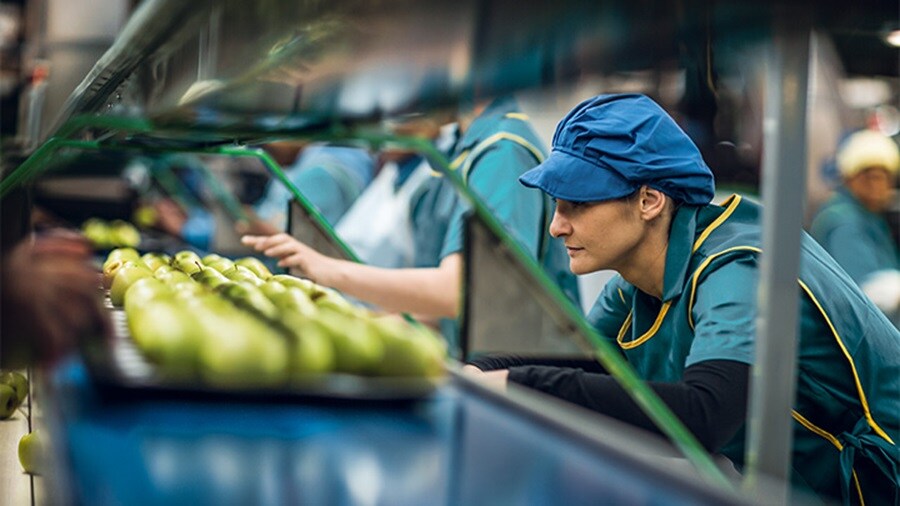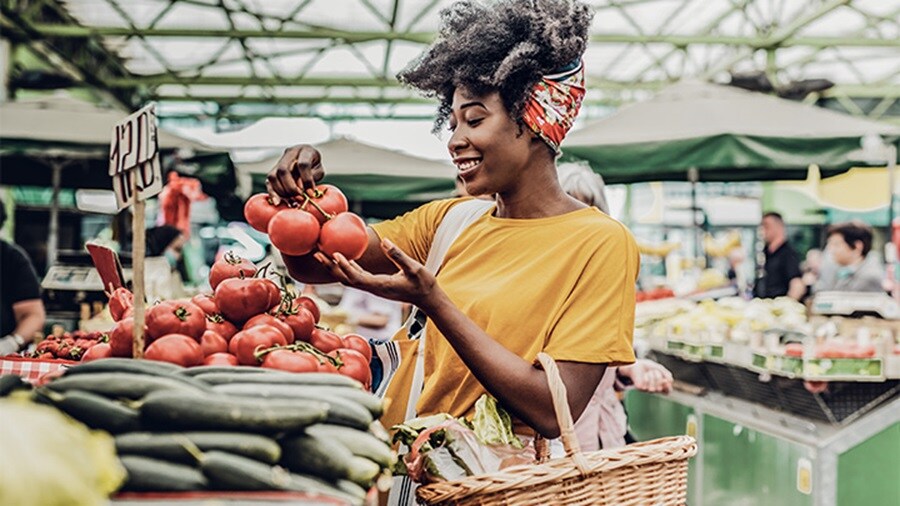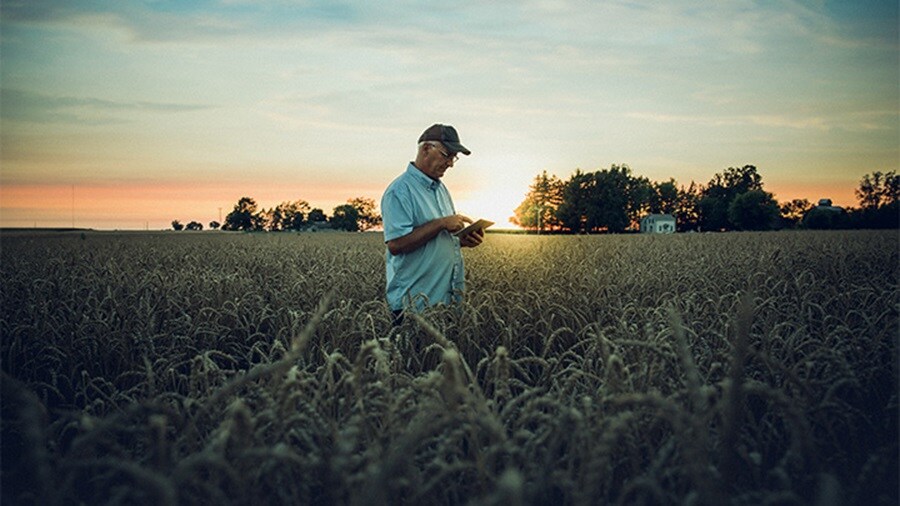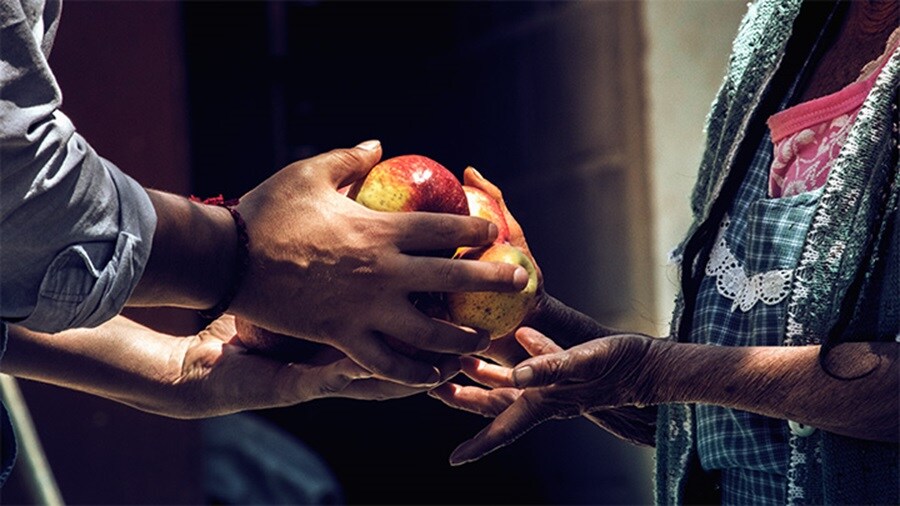The fruit and vegetable market has weathered a tumultuous few years, and 2024 will continue to pose challenges. Maersk Cold Chain experts attended Fruit Attraction 2023 – one of Europe’s leading events for the fruit and vegetable sector – to help organisations solve their cold chain challenges. At the event, we asked the experts to shed some light on next year’s key obstacles for fruit and vegetable businesses, and how can they best prepare?

1. Climate change impacts food production & security
The UN states that climate change is the “largest… threat to the natural environment and societies the world has ever experienced”. The global food cold chain alone is responsible for 1% of all greenhouse gas emissions.
Increases in temperature and pests, and changes in rainfall and distribution of pollinators could all affect production. Elevated atmospheric CO2 concentrations can increase yields at lower temperatures, but decrease protein content, reducing nutritional value.
If agricultural land becomes more susceptible to weather shocks, producers must find ways of increasing efficiency.
One solution is to do more with the food that can be grown, by tackling food waste. 25% of apples and 20% of onions in the UK are destroyed because they ‘don’t look right.’ Producers and retailers can reduce waste by highlighting the importance of ‘ugly’ produce, or growers could sell these foods directly to consumers through farmers’ markets or subscriptions.
Produce that doesn’t meet cosmetic standards could also be used to create soups or sauces, known as ‘food upcycling’: a market projected to be worth USD 97 billion by 2031.

2. Consumer trends towards food traceability
Consumers are increasingly interested in knowing how their food is produced. In a recent report, 72% of respondents said that transparency is extremely important to them when deciding which brands and retailers to support. They are most interested in where their product was processed, packaged, produced and harvested.
Traceability regulations are also getting stronger, and technology can help.
Blockchain – a digital platform where users can store information and see transactions in real time – is promising.
Once information is added to the blockchain, it becomes permanent and can’t be manipulated, giving producers, retailers and consumers access to trusted data and helping all supply chain parties meet regulations.

3. Responding quickly to jumps in demand
Retailers need a supply chain that can adapt quickly, otherwise, they’ll miss out on revenue or entrance into new markets.
A ‘bullwhip effect’ is an accelerated reaction across a supply chain, and can lead to insufficient product supply. One of the biggest examples was in 2020 when Covid-19 lockdowns meant people turned more to home-cooked meals, so food manufacturing and groceries saw increased demand.
In 2023, poor weather in Spain caused a UK-wide retail shortage of tomatoes, cucumbers, peppers and broccoli. Other suppliers could have moved in quickly to fill the demand. Adjusting the supply chain at speed requires working with a logistics provider that has flexible transport and cold chain storage options.
Digitisation of the supply chain also helps companies adapt at pace: access to asset tracking and inventory management data makes it easier to identify sales trends and forecasts.

4. Yet more changes to agriculture regulation
Perhaps the most significant change is the EU’s proposal of a new Soil Monitoring Law to protect and restore soils in member states. Foundation Earth has been tasked with developing a Europe-wide eco-label for food and drink products, which will provide information on environmental footprints. The EU is also looking to deploy a nutrition scoring system to provide consumers with clarity.
Complying with these changes is a huge challenge, so the faster companies act, the better.
This doesn’t all have to be completed in-house though: external expertise can help make things simpler. A centralised management tool can help growers stay compliant, keep ahead of changes and make informed business decisions.

5. Fragmented cold chains pose real risks
The more links there are in a cold chain, the more opportunities there are for things to go wrong. As fruit and vegetable businesses scale, they often do so by using many different logistics providers to transport their goods. A single global shipment of refrigerated cargo can involve as many as 30 businesses and 200 unique interactions.
That leaves a lot of room for error. Poor communication between parties can drive inefficiencies, and more handover points could increase the risk of produce warm-ups or delays.
Complying with regional regulations is challenging without end-to-end visibility, and it can be harder to keep track of the produce’s carbon footprint.
An unbroken cold chain, delivered via a single partner, can reduce margins for error. Digitalisation can also help improve efficiency. Using customs as an example, a declaration could include more than 40,000 rows: a huge administrative drain. But with digitalisation, the form can be populated in seconds.
Intelligent cold chain systems are also useful, exchanging real-time data to quickly respond to changes in the cold chain, reducing losses. Sensors monitor temperature, humidity and equipment status and, after analysing the data, servers can send out early warnings.
The coming years will bring new challenges and opportunities, but one thing is clear: fruit and vegetable companies need end-to-end visibility and control. Maersk has over 250 years of reefer expertise, and we design truly integrated cold chain solutions for fruit and vegetable businesses. If you missed the opportunity to connect with our Cold Chain experts at Fruit Attraction 2023 to discuss unique solutions for your unique needs, you can book a meeting with us now.
For a deep dive from our experts, download our free e-book.
Book a meeting with our Cold Chain Experts
Thank you very much! We will be in touch with you shortly.
Something went wrong.
Book a meeting with our Cold Chain Experts
Complete the form to book a meeting with our cold chain experts:
无论您需要什么,我们都可以随时为您提供帮助
提交此表,即表示我同意通过电子邮件接收 A. P. 穆勒-马士基集团及其关联公司接收物流相关新闻和营销信息更新。我了解我可以随时通过点击退订链接,取消接收此类马士基推送信息。如需查看我们会如何处理您的个人信息,请查阅隐私公告。

